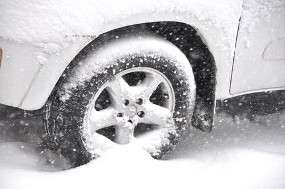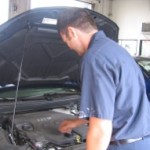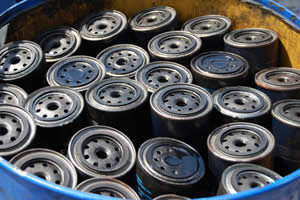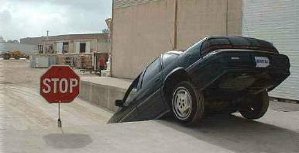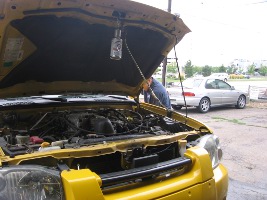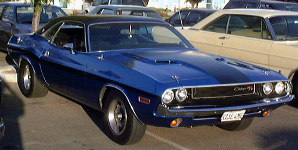Now that the weather has gotten colder and we can no longer drive around town with our windows down. Have you noticed the air blowing around inside your car isn’t as quite as fresh smelling as it once was? If that is the case, it might be time to change your cabin air filter. The cabin air filter is an essential part of your car’s ventilation system. It removes dust particles, pollutants, and unpleasant odors from the air before they can enter the passenger compartment. Cabin air filters are also called interior ventilation filters, pollen or dust filters, ACC filters, or passenger compartment filters.
A cabin air filter purifies the air ( which is especially important to those of us who suffer with allergies or respiratory problems). And it also protects the heater and air conditioning components. A dirty filter puts more wear on the ventilation system because when there is a higher resistance to air flow, the blower has to work much harder. This reduces your heating and air conditioning performance over time. So if your filter isn’t changed like it should be, you not only have unpleasant odors to deal with, but possible repairs to the ventilation system.
So when should they be changed? Under “normal” driving conditions for a vehicle driven mainly in a city or suburb area, a cabin air filter lasts about a year. For a vehicle in a rural area that is driven frequently on unpaved roads, the filter life may be only six months or less. A lot depends on the vehicle and the way it is driven.
If you aren’t sure whether or not you have a cabin air filter in your vehicle, more than eighty percent of all new vehicles today have a cabin air filter. If your car was manufactured after 2000, than it more than likely has one. But if you’re driving an older model of car and smell a strange odor, unfortunately, it might not have a thing to do with a cabin air filter!
For all of your Denver Auto Repair needs, trust Express Car Care. Call (303) 691-2760 or stop by our shop today.

